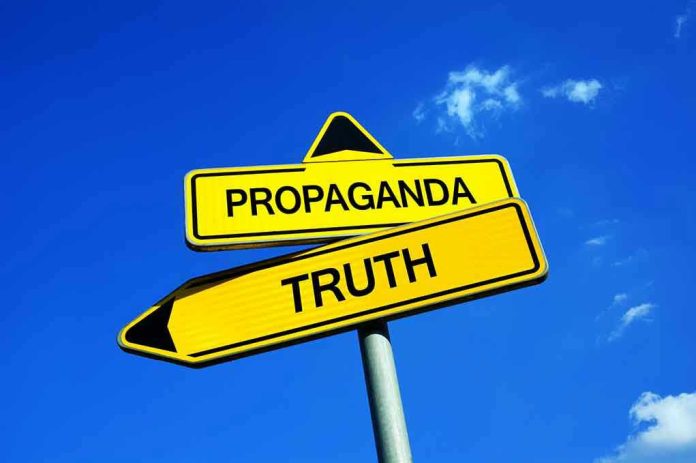🔴 Website 👉 https://u-s-news.com/
Telegram 👉 https://t.me/usnewscom_channel
Governor JB Pritzker’s portrayal of Chicago’s summer as “amazing” stirs controversy amidst ongoing violence concerns.
Story Highlights
- Chicago records the lowest summer murder count since 1965, yet remains under scrutiny.
- Pritzker’s optimistic comments on Chicago’s summer spark debate over crime statistics and reality.
- Federal officials, including President Trump, criticize Chicago’s handling of crime.
- Chicago’s crime statistics show improvement, but public perception remains skeptical.
Chicago’s Crime Statistics: A Mixed Picture
In the summer of 2025, Chicago recorded 123 murders, marking the lowest summer total since 1965. This statistic suggests progress in reducing violent crime, a significant achievement for a city often criticized for its high murder rates. However, the perception of Chicago as a city plagued by violence persists, fueled by ongoing national scrutiny and political narratives that contrast statistical improvements with the city’s reputation.
Illinois Governor JB Pritzker recently described Chicago’s summer as “amazing” on the “Pod Save America” podcast. His remarks were met with criticism, especially from conservative circles and federal officials, including President Trump. Critics argue that while the crime statistics show improvement, the reality of ongoing violence contradicts his optimistic portrayal. This tension between reality and political messaging highlights the complexity of addressing crime in a city rife with socioeconomic challenges.
Political Tensions and Federal Intervention
President Trump and his administration have been vocal critics of Chicago’s crime rates, advocating for federal intervention as a solution to the city’s persistent violence. The Trump administration’s stance emphasizes stricter law enforcement over community-based solutions favored by local leaders like Pritzker and Chicago Mayor Brandon Johnson. This clash of approaches underscores the broader national debate over the most effective strategies for reducing crime in urban areas.
Chicago’s leaders, including Pritzker and Johnson, focus on community investment and social programs to address the root causes of crime. Despite the decline in violent crime, the city still leads the nation in total murders and faces ongoing challenges with property crime and data accuracy. These issues complicate the narrative of a city on the mend and highlight the need for sustained, multifaceted interventions.
Looking Forward: Challenges and Opportunities
While Chicago’s recent crime statistics offer a glimmer of hope, the city faces significant hurdles in changing its reputation. Sustained reductions in violent crime could eventually reshape Chicago’s image and influence future policy decisions. However, challenges with property crime, data reporting accuracy, and public perception continue to pose threats to this progress. The ongoing debate over crime policy, data interpretation, and the balance between enforcement and community investment remains central to Chicago’s path forward.
Community organizations play a crucial role in Chicago’s strategy to reduce violence, acting as intermediaries between residents and government. Their efforts, combined with policy decisions driven by elected officials, are vital to maintaining momentum in crime reduction. As Chicago navigates these challenges, the focus on data-driven interventions and community engagement remains paramount in achieving long-term safety and stability.
Sources:
Chicago Sees Fewest Summer Murders Since 1965, Trump Pushes Federal Troops
Chicago Crime Data: Trump National Guard
Crime in Chicago: What You Need to Know
JB Pritzker Touts ‘Amazing Summer’ In Chicago
JB Pritzker Touts ‘Amazing Summer’ In Chicago — Despite Bodies Piling Up
